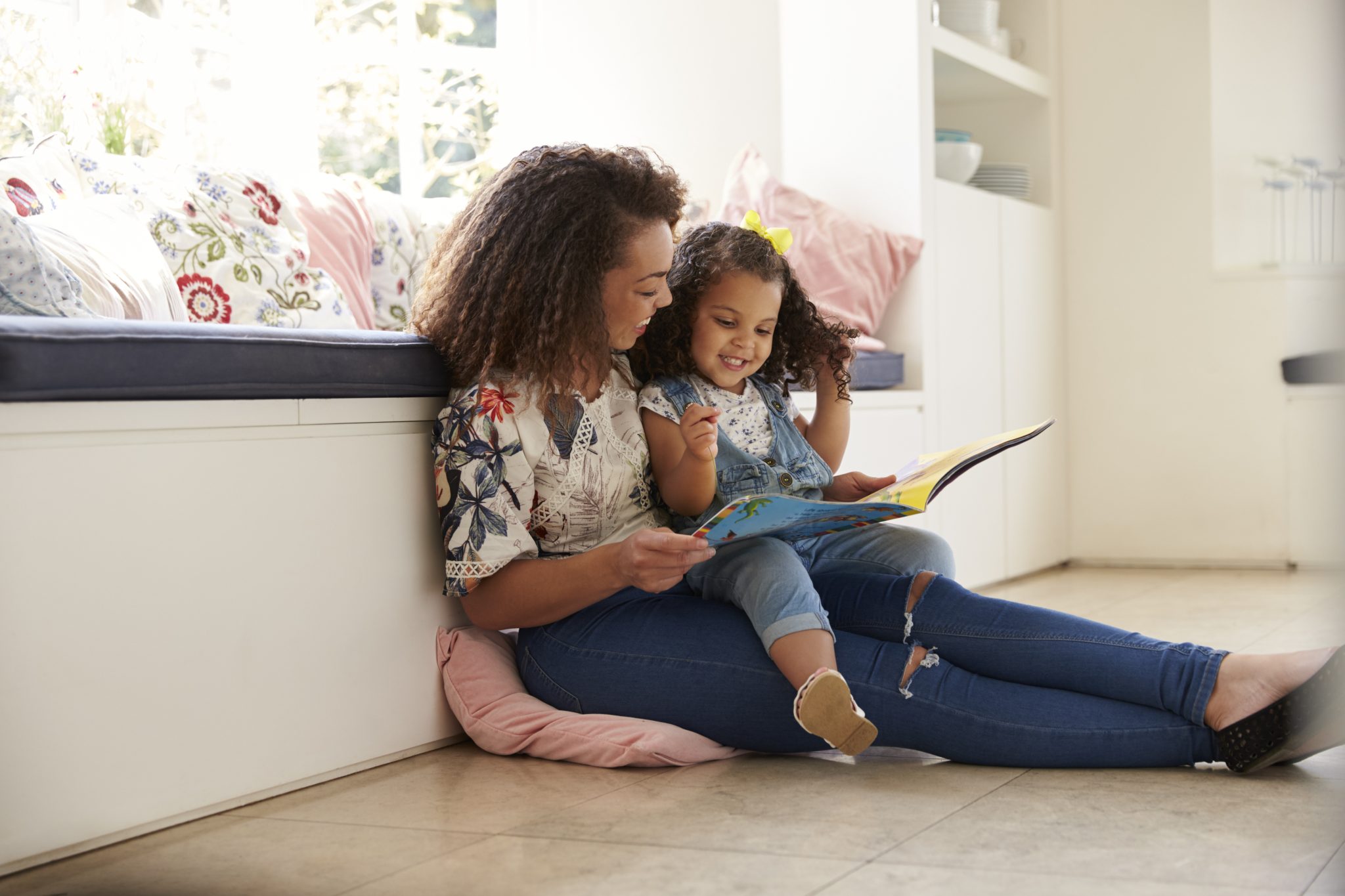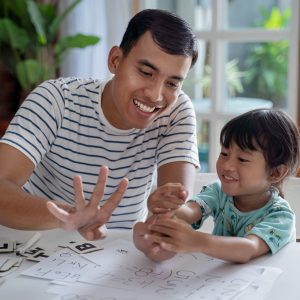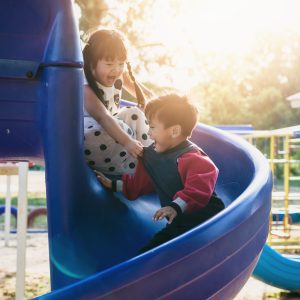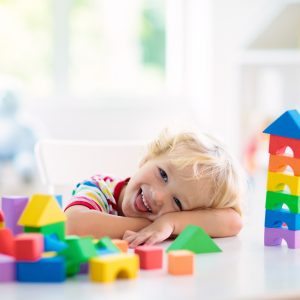Home & Family

Children are always learning. You can help children be ready for school by introducing them to reading, numbers, and skills for following instructions.
Reading Readiness
You are your child’s best teacher! In the early years, the best thing you can do is develop a close relationship with them while helping them explore and play. How you do this is different at every age. Before you lead them to the school door, there are specific things you can do to help them prepare.
At the end, you will find some national websites that have extra materials and ideas for how you can help your child be more ready for school.
5 Tips to Teach Reading
The best thing you can do is read with your child. Here are five tips for conversational reading that help get your child ready for reading. Remember to be relaxed. You do not have to be perfect—the most important thing is to have fun!
- Point to the pictures and words. Children will learn that reading goes from left to right. They will learn to focus on words even if they cannot read them yet.
- Relate the topic to your family life. For example, “Does our dog bark like this?”
- If your child is 3 or older, ask questions about how the characters might have felt. For example, “Do you think Little Red Riding Hood was scared?”
- Repeat words and let them interrupt you. For example, start the sentence and let them finish it after they know the book.
- Ask your child to think about the story. For example, “Why was Little Red Riding Hood going to her grandma’s house?”
These techniques are called conversational reading. They help young children get to know what reading and books are about.
Books to Stretch Children’s Thinking from NAEYC.org
Story Books
- Round Like a Ball
- Not a Box
- Not a Stick
- Just How Long Can a String Be?
- Duck! Rabbit!
Picture Books to Help Develop Observation Skills
- Spot It: Find the Hidden Creatures
- Where’s Waldo series
- Changes
- Good Night, Gorilla
Infants like to chew so soft books are a good choice. Toddlers like books with simple pictures.
Numbers Readiness
Numbers are important, too. Young children learn math by sorting and organizing things. You can help their educational growth by letting them organize cups to fit into each other or by organizing objects into rows. Let them play with shapes, like making cookies in different sizes. These are “pre-math” skills!
You can help a child understand math concepts by pointing out how things are big, bigger, and really big! These are the concepts of “number” and “order.” Little children really enjoy “hundreds” of things or “lots and lots” of things. Older children will notice if someone gets more cookies or a bigger piece of cake than they do – this is math!
Organize for the First Day
- Teach them their name and where it is in the alphabet, so they are ready when their teacher calls their name on the first day of school.
- Teach your child directions like“in front” or “behind” or “line up” with games like Simon Says!
- Teach them to share and get along with others by giving them opportunities for free play with others.
- Limiting screen time helps them have more time to play and learn social skills.
Play Is Imagination
Young children learn to think by playing. When infants put their foot in their mouth, they are exploring where their body is in space. When they play peek-a-boo, they learn that things they cannot see are still there. When 3-year-olds play dress up, they learn how it feels to be a different person and how to relate socially. Exploring books with your children helps them understand the importance of words and the world of ideas in them.
- Infants like to explore objects with their senses and engage in back and forth interactions with the people they see each day.
- Numeracy means counting. Toddlers like to stack blocks and knock them down. Parents can encourage them by counting up with them.
- Preschoolers like to play dress-up and pretend. Parents can help by letting children play with simple household items.
For more ideas, check the nationally recognized resources below and sign up for Just in Time Parenting!
Summary: Main Ideas
- A strong foundation starts with good relationships.
- Play is the way young children learn to think.
- Socially and emotionally intelligent children are ready for school.
Build Social Readiness with Trust
When children trust that you’ll be there, they feel confident to explore the world on their own. Being close to your children builds trust in relationships, and the social skills they gain help them prepare for school.
- Playing with other children teaches them about sharing and caring, but also what to do with feelings like jealousy, frustration and anger. Playing helps them understand that other people have different needs and feelings.
- Naming emotions helps them understand what they are feeling and helps them make choices about what to do about feelings in themselves and others.
- Young preschoolers are not able to understand what a lie is, but you can help learn to be responsible by being consistent and gently showing them what you expect.
Resources
- Extension School Readiness Information
- Overview for Parents and Educators
- Parents Get Ready! (Advocacy Information)
- Children Get Ready!
- BEE Series (Begin Education Early, No. 1-9)
- Just in Time Parenting
- Subscribe for free newsletters at: jitp.info
- Suscríbase al boletín informativo para padres Just in Time en jitp.info/es
- Your local librarian!
- National Association for the Education of Young Children (NAEYC)
- Learning and Development at families.naeyc.org
- Zero to Three: School Readiness
- www.zerotothree.org
- Helping Your Child Become a Reader (American Federation of Teachers)
- www.aft.org
- National Education Association
- www.nea.org
 Silvia Vilches, Extension Specialist, Assistant Professor, Family and Child Development, Debra Ward, Regional Extension Agent, Beth McDaniel and Ania Craig, Graduate Research Assistants, Human Development and Family Science, Auburn University
Silvia Vilches, Extension Specialist, Assistant Professor, Family and Child Development, Debra Ward, Regional Extension Agent, Beth McDaniel and Ania Craig, Graduate Research Assistants, Human Development and Family Science, Auburn University
New February 2022, School Readiness Series: Children Get Ready! FCS-2558




